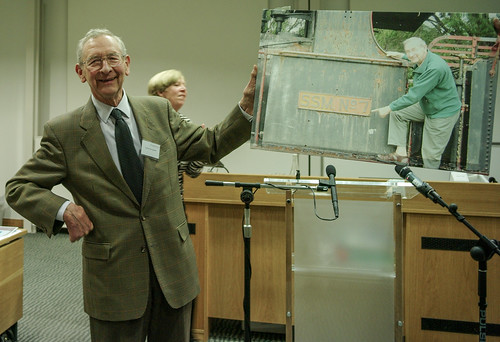Like many hacks, I’ve done very little work this morning, because I’ve been glued to the live feed from the Leveson Inquiry. Why? Because the Dirty Digger, aka Rupert Murdoch, has been giving evidence under oath. At the heart of his questioning by Robert Jay Q.C., Counsel for the Inquiry, was Jay’s attempt to obtain from Murdoch an acknowledgement that he wielded political power. Predictably, Jay failed to elicit from the Digger any acknowledgement to that effect.
I suspect that — unless a smoking gun appears (e.g. a documentary trail proving that Murdoch obtained a commercial advantage as a result of a solicited political intervention) — Jay is on a mission to nowhere. Whenever the questioning strayed onto dangerous ground this morning — e.g. discussion of the Sun front-page headline saying “It was the Sun wot won it!” after John Major unexpectedly won the 1992 General Election — Murdoch went to great pains to point out that he had delivered a “bollocking” to the editor responsible, Kelvin MacKenzie. And the reason is obvious: if newspapers were claiming to exert such direct power over the electoral process, then they would be in trouble — even in such an enfeebled democracy as ours.
And yet it’s obvious even to the dogs in the street that Murdoch wields enormous power. The reason the Leveson Inquiry can’t get to it, though, is that it’s working with the wrong conceptual framework. If you want to understand the power that Murdoch actually wields, then a good place to start is Steven Lukes’s wonderful book, Power: A Radical View, the best analysis of the phenomenon I’ve every encountered. Crudely stated, Lukes’s view is that power comes in three varieties:
1. the ability to compel people to do things they don’t want to do;
2. the ability to stop people doing what they want to do; and
3. the ability to shape the way they think.
The problem with the Leveson Inquiry is that it’s looking for evidence of #1 and/or #2, whereas in fact #3 is the one they want. And cross-questioning the chief suspect is not the way to get at it.



